Don't wanna be here? Send us removal request.
Text
BLOG NUMBER 10
May 3, 2022
WOW: so many jounrnals from which to choose. The amount of time taken to research the likes and wants of each journal was consuming. I confess having difficulties matching the nature of my story, Flight from Egypt, with specific literary journals. The Mexican painter Diego Rivera once said something about his art that goes something like this: “A true painter doesn’d simply try to paint, she paints like a living being driven to take each additional breath.” My life’s goal is to achive this same need in my life’s writings; hence, I need to achive publication as my next artistic breath.

Though I would liked to have submitted my short story to an LGBT-focused journal, the nature of the story doesn’t fit well in this genre. So I decised to seek another outlet.
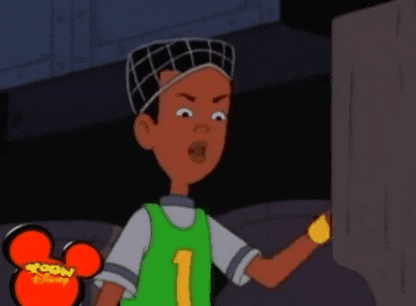
What surprised me in researching the possibilities in journal submissions was the wide varieites in genres and interest points as well as the exacting nature of their submission requirements. One of the journal that received my submission, After Diner Conversation, was exacting in their expectation that submissions include only those of a philosophical or moral standard subject. Though this journal required only an email submission, the editors demaded that the email include a canned statement that I understood the magazine’s areas of interest. While some journals, like After Diner Conversation, allow email-based submissions, others require a formal digital submissions via outfits like “Submitable”. Some journals require a nominal reading fee for submissions, others allow free submissions.

Another surprise was the number of journals that are not currently accepting submissions because of the cyclic nature of their reviews or for other reasons. I suspect that i selected a half dozen journals for possible submissions only to learn that those opportunities had closed. For example, as an author over the age of 50, I decided to submit to Passager Magazine, but learned that submissions were not open until this July. Could the COVID epidemic be at play in some of these cases?

In the end, whilst running out of steam and confidence, I made a second submission to the The Racket, primarily because they did not charge a reading fee and as a result of their interest in accepting submissions for writers who are frequently marginalized (in my case, a gay senior). So off went the submission with fear and dread in my belly. I have to admit that the selection process, howbeit exhausting, was quite the adventure. Not only did the process serve to familiarize me with many publications available to writers but also afforded me the opportunity to experiment with writing cover letters and bios. Fun? Perhaps not; however, I enjoyed the learning process.
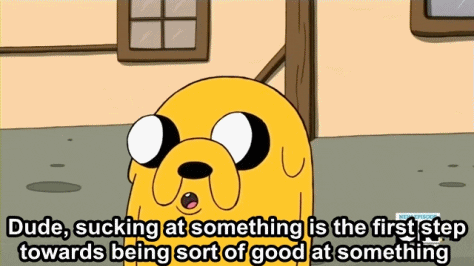
6 notes
·
View notes
Text
BLOG NUMBER 9
May 2, 2022
There’s an old adage from my childhood (yes, that period was many eons past) that went something like this, “Nobody wants to hear that their baby is ugly.” As a parent I understand that pronouncement: something that we, as parents, have responsibility for creating is, without question, unquestioned in grace and beauty.

Ah, but that’s not how a peer review of my most recent baby, my short story Flight from Egypt, was greeted. Though I should have known better, my baby was not the creation of another and, therefore, open to constructive criticism. And that criticism was, shall we kindly say, motivating.

The irony of the literary criticism received was the preface of my corresponding peer review of my peer review partner: this preface nobly declared my allegiance to the spirit of honest objective and subjective critique provided strictly in the interest of writing improvement. As it happened, I received a fair measure of what I gave: I’m not quite sure that my peer reviewer stated forthrightly that my baby was ugly, but the critique certainly indicate that she possesses some mighty significant blemishes.

I was not amused. A day passed before I established on objectively positioned stance toward absorbing said criticism. The process of absorption was painful; however, the process was a learning event and, eventual, I learned a lot. In spite of my obvious degree of hypocrisy, I’ll reveal what I learned.
Though our class text provided plentiful advice on structuring dialog, I have to admit that my written dialog tended toward being stilted and questionably believable. The question was asked on a number of examples of my dialog, “Do real people talk like this?” The correct answer for the sake of learning was, in several case, no. I was, subsequently, my duty to revisit and frequently restructure the dialog I employed. While in some cases I engaged a regional Maine accent that I believed appropriate, my protagonist’s words needed adjustment. The lesson was a good one.
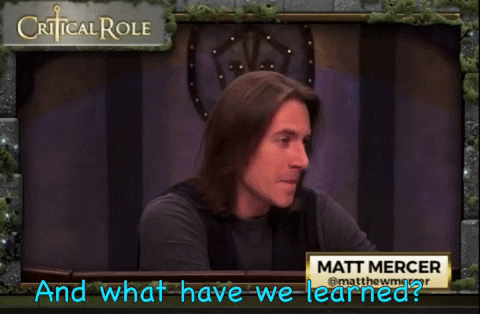
An additional area for writing improvement referenced in the peer review concerned strengthening the POV portrayed for the primary character in my story, Mara Michaud. Again, I initially resisted the suggestions provided; however, in further personal review I concluded that her voice and her point of view was diminished in certain areas of the story. To correct this, I found myself restructuring the story such that most of the scenes were focused on Mara and ensuring that sufficient information about Mara, such as who she was as a person apart from the action, such that she and her plight became more real for the reader. The learning process is more meaningful when one looks back and wonders why the oversights were initially formed: such are the diversions of being a life-long student and learner.

Finally, my peer reviewer provided feedback that caused me to question how the structure and paragraphs of my story were further the action within my tale. A follow-up revision of Flight from Egypt led to reordering the flow of the story, cutting nonessential material, and altered word usage. While I understand that the job of revision might continue until publication, I do believe that the story is a better one as the result of this criticism.

There was an additional lesson-learned in the course of the peer review process that, perhaps, the peer review had not intended: the art sticking to you guns when the rationale is justified. Given that the story is my baby, the essence of this child must, eventually, be mine to raise within the bounds of reasonable convention. For example, my protagonist, Mara. reached a point in her flight from Egypt that she achieved physical safety from bodily harm. My peer reviewer believed that my story should end at that achievement of physical safety. I disagreed. Why? Because a return to physical safety after a period of intense trauma does not necessarily ensure emotional or mental safety. The plight of those freed from Nazi death camps only to experience significant and prolonged emotional duress has been well documented as has the plentiful cases of PTSD for American combat veterans returning to the presumed safety of their home towns.

Hence, I retained the original intent of my story’s conclusion: Mara fails to achieve a sense of well-being regales of her eventual safe haven. Not necessarily a happy ending, but such are the realities of human existence.

My conclusion: learn from others when possible, but stick to your guns when creativity beckons elsewhere. it’s tough, but so is your character’s life.
4 notes
·
View notes
Text
BLOG NUMBER EIGHT
Plot, Conflict, and Climax
March 27, 2022
Given that this blog is a public forum, I have great reservations in discussing the details of my short story with intricate detail. If one were to deem my comments a tad cagey, the observation would be a reasonably correct one: I am reluctant to share my work to the wider world at this point.

The protagonist in my story, Flight from Egypt, opens with as significant a conflict as one could face: she’s with her infant son and is running for her life. Yet Mara’s conflicts are more complex than they appear: she must execute an escape with more cunning and degrees of perseverance than she has previously mustered. The reader might ask if Mara has ever previously embarked on a course that wasn’t set by someone other than herself.
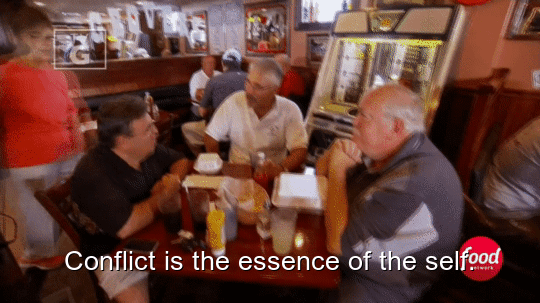
Complicating Mara’s quest is an antagonist, a thug who is obsessed with a mission of revenge. Without revealing details, the story’s climax occurs at an international border. Howbeit a climax, the story does not end here. Where might the story lead? As the subject of a series of devastating traumas, Mara faces significant emotional conflicts as well as physical. Does a combat veteran’s challenges end upon her return from the battlefield?

Will Weaver wrote a short story, A Gravestone Made of Wheat, that resonates within my memory. The title of the story alone is a memorable one; however, I have long wished to emulate Weaver’s ability to tell a concise yarn on the rural-bound folks of my origins, the American Midwest. Weaver begins his story with Olaf Torvik trying to balance the hard reality of his wife’s recent death with the sheriff’s injunction on the family’s planned burial on their farm’s 1800 acres. The conflict with a new state law is only the pinnacle of Olaf’s long-term conflicts with authority as he recalls bringing his German-born wife to the States during the height of WWI anti-German sentiment. From the Lutheran pastor’s insistence on his wife’s baptismal certificate to the county clerk’s demand for a never-ending supply of German documents, the couple’s desire to live their farming life as married American citizens is thwarted at every turn. Deciding to exist on their own terms, the couple labors peaceably for nearly fifty years, raising two robust sons.

Olaf’s conflict accelerates with this final and, in his view, authoritarian affront; yet, sitting alone with his deceased wife, he devises a plan. After a hearty supper and into the night, he and his boys devise a burial site within the expanses of the family’s wheat fields, marking the location solely with an abundance of chemical fertilizers and manure. The burial serves as the climax and as Olaf’s victory over the persistent intrusions on what, for him, are strictly family matters. “He knew that next year, and nearly forever thereafter, there would be one spot in the middle of the field where the wheat grew greener, taller, and more golden than the rest.”

Olaf Turvik’s desire was to live an honorable and meaningful farming life without pointless edicts placed in his pathway. Mara’s desire, at least her most obvious desire, is to assure the health and well being of her persecuted family. But is that immediate desire the full extent of Mara’s yearnings? I think not. While the greatest threat to Mara’s immediate desire is the obvious ongoing political persecution, she may have held a life-long desire that has not been fulfilled. Please stay tuned.

The story’s climax occurs at an international border. Mara faces far more physical and emotional barriers than a simple gate at an international boundary point. Is she victorious? My question: did those who escaped Auschwitz in 1945 all rejoice in their new leases on life?

Mara changes superficially within my story: I say superficially because she is brutally forced into actions that may ultimately assure security for members of her family. She has no other choice unless she willingly faces the certainty of death. However, what has changed internally for her? What has she learned? Good questions … again, my friends, please stay tuned. The tale is far from over.

My story would appear to be about the evils of political persecution; however, it is not. The ongoing persecution of people like Mara and her family largely serves as the medium for my story: the canvas used to convey a picture. There exists an abundance of history books, research projects, and essays on persecution … I neither sufficiently researched that subject nor desired to add my input other than an obvious disapproval of such brutality. My story is more about a human being’s quest to confront significant trauma such that a modicum of emotional and psychological stability is achieved as well as physical security. Mara has lost her previous life; hence, she may never again be jubilant. Yet can she learn to be emotionally content? Can she begin a new life with her person discovered and her dignity intact?

Read my story and find out.
3 notes
·
View notes
Text
BLOG NUMBER SEVEN
March 21, 2022; 8:20 pm
Research in Continuum
“You may be entranced with what you're learning about flesh-eating bacteria, the sewer system of New York, or the IQ potential of Collie pups, but your readers are probably going to care a lot more about your characters and your story.”

Photo orginally posted by NPR.org
Stephen King made this observation in his book, On Writing, A Memoir of the Craft, first published in 2000. One could deduce from his comments that he holds research in low priority within his novel-writing objectives. However, given his two novelist strengths, a prodigious imagination and an envious empathy for human quirks, he has proven himself as an established exception to what might be considered a student’s mandate.

stephenkingbooks.co.uk
Recognizing the exceptions in his research approach, King also wrote in this book (not without sarcasm, of course), “Exceptions to the rule? Sure, aren't there always? There have been very successful writers - Arthur Hailey and James Michener are the first ones that come to my mind - whose novels rely heavily on fact and research. Other popular writers, such as Tom Clancy and Patricia Cornwell, are more story-oriented, but still deliver large dollops of factual information along with the melodrama. I sometimes think that these writers appeal to a large segment of the reading population who feel that fiction is somehow immoral, a low taste which can only be justified by saying, 'Well, ahem, yes, I do read [fill in author's name here], but only on airplanes and in hotel rooms that don't have CNN; also, I learned a great deal about [fill in appropriate subject here].”

With King’s unconventional humor in mind, I must confess that, in writing Flight from Egypt, I am hesitant toward continued research. This confession is not an admission that I have committed actions worthy King’s writing attention, but to acknowledge that my story has reached a point where additional research could lead to subsidence of reader interest. For example, I could include legions of augmenting insights on Maine geography and cultural oddities; however, my tale is not about Maine but is a saga that merely occurs within that state. Hence, I have ended my location research with the assumption that I have achieved plausibility.

Two areas of relevant research continue to cause me pause, one to a far great extent than the other. The first area includes the mystery of tyranny and the unspeakable toll on the lives of its victims. Certainly, the ongoing rape of Ukraine has sufficiently impressed upon us all the evil that an autocratic system has inflicted on a hapless people. I shudder in consideration of the likely emotional trauma thrust upon the populace in addition to the inevitable physical maimings.

NPR.org
Since my story reflects the injury caused by tyrannical measures, howbeit on a smaller scale, my research has expanded to include the emotional impacts on victims of war, oppression, and human tragedy. This change came about in a re-reading of my story and the realization that the protagonist was not likely to end her flight in even a semblance of stable emotional health. The costs in survival were too great to achieve survival as a whole and well person.
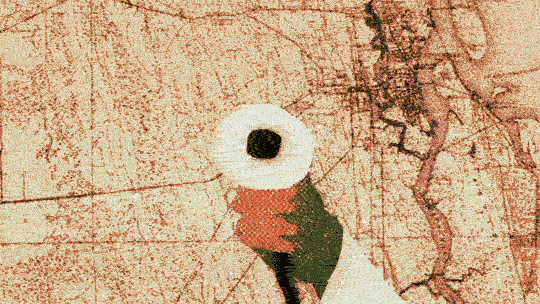
As a perennial student of the WWII era, I knew of the long-term impact that was forced upon survivors of Nazi concentration camps; however, I decided to refamiliarize myself with the specific symptoms and manifestations that haunted lives thereafter. For obvious reasons, my research included recent studies on PTSD and the wallop of traumatic events on individuals, families, and society.
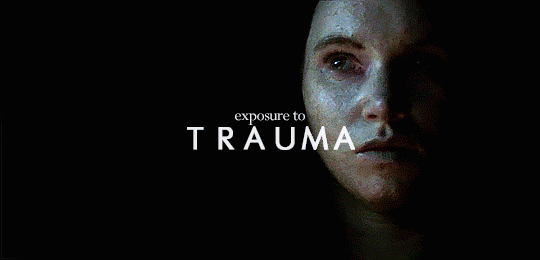
The United States Holocaust Memorial Museum published significant sources of information on the emotional and psychological impact of holocaust survival. A valuable source of information on refugee flight trauma was published by the Refugee Health Technical Assistance Center (https://refugeehealthta.org/physical-mental-health/mental-health/adult-mental-health/symptoms-of-distress/). These and other sources provided insights to the differences in PTSD symptoms and emotional impact in those who were forced to flee persecution and those impacted by other forms of trauma, such a those engaged in warfare. The additional sources served to amplify the research sources referenced in Blog 4.

Given the ongoing atrocities in Ukraine, I couldn’t avoid thinking of Mara’s plight when listening to interviews of refugee children who experienced unthinkable acts of violence.
youtube
When first I explained the key elements of my story, Flight from Egypt, to a fellow senior in late January, I was told, “Aw, that can’t happen here.” Lord help us.
In memory of those courageous Ukraininians who opposed tyranny st the cost of their lives, I have added ongoing research on the psycholgical and emotional impacts on the people of this magnificent nation.
3 notes
·
View notes
Text
BLOG NUMBER 6: POV and Perspective
March 14, 2022
My story, Flight from Egypt, employs a third person point of view (POV). The primary perspective is that of Mara Michaud, the story’s protagonist. To complicate my saga, I have also included to a far lesser extent the perspective of an antagonist, a person who is in pursuit of Mara (I’m withholding his name until a latter point in the semester).

As the author of this tale I created two characters who, for differing reasons, are under levels of stress that, in our age, are difficult to envision. Mara is under obvious pressure as a persecuted person who experiences significant losses. The antagonist, in my opinion, is also under stress; however, his pressures are largely self-inflicted. In either case, I did not trust my characters to fully comprehend either the tensions placed upon their existences or their subsequent responses, both active and passive. Hence, I opted for the prescience of a “wise” narrator to perceive both the reactions and, in the case of Mara only, percieving her mental deliberations and inner thoughts.

To a large extent Mara is a victim: the story establishes that she is literally a victim of the ongoing circumstances. Her ability to control her life is sginificantly constrained. However, having never created a voice of her own, she frequently views herself as a victim to most facets of her life. Yes, a story might have been created using Mara’s personal POV (she tells the tale, not the narrator); yet I made the decision to tell her story from a broader view, similarly as would an audience member in retelling a tragic play a day later. Yes, Annie Proux could have written Brokeback Mountain from a first person POV; however, I believe that she did not for similar reasons I held for Flight from Egypt: the characters were not sufficiently knowledgeable of themselves to convey the full story.
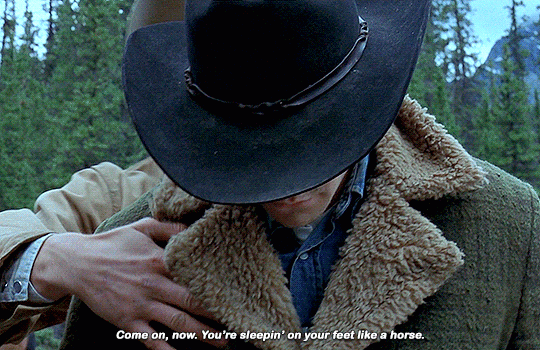
“They never talked about the sex, let it happen, at first only in the tent at night, then in the full daylight with the hot sun striking down, and at evening in the fire glow, quick, rough, laughing and snorting, no lack of noises, but saying not a goddamn word except once Ennis said, “I’m not no queer,” and Jack jumped in with “Me neither. A one-shot thing. Nobody’s business but ours.” This excerpt from Brokeback Mountain by Annie Proux exemplifies her possible rationale for selecting a third person point of view: her two characters are, sadly, clueless to the circumstances of their nature. Like Mara, Jack and Ennis are victims of the respective circumstances. As Michael Kardos states in The Art and Craft of Fiction, third person stories can “provide psychological distance, or an understanding of the story that is unavailable to the character himself …”

In a partial similarity to Richard Rausch’s story, Tandolfo the Great, my story employs a limited omniscient POV, that is, the story’s narrator has full permission to access the mind of the protagonist only. Her plight is the crux of the story and the reader should know the thoughts that befall her. Differing with Rausch’s story, I decided not to create the antagonist from an omniscient POV: he is Mara’s adversary by choice and affects Mara in her response to his threats. As a writer, I detested his behavior and did not want to confront the workings of, what I considered, his sick mind. Our access to my antagonist is strictly an objective view: we witness only his words and behavior. The antagonist is a bit like the Gollum in Tolkien’s Hobbit: he is the embodiment of evil, largely through the mechanisms of his own decisions.

I enjoyed reading Tandolfo the Great and comparing the POV and perspective of Rodney Wilbury, Rausch’s protagonist, with my story’s prime character, Mara Michaud. While the two characters are dissimilar, both are in their own ways pathetic in their abilities to cope with life’s traumas. Mara, of course, is subjected to extreme urgencies that would break most of us; however, both Mara and Rodney lack an understanding of their circumstances. Mara is forced to flee her own home because of political persecution, while Rodney (as Tandolfo) is forced to flee the birthday party because he behaves and speaks as a person who is not in control. Both characters are grieving their losses. Both are not in control. Richard Rausch understands his character and has chosen to share Rodney from a limited omniscient POV to emphasize his protagonist’s limits in fathoming his circumstances.

6 notes
·
View notes
Text
BLOG NUMBER FIVE
Story Setting and Detail - February 28, 2022

FUN EXPECTATIONS!
The expectations for this blog assignment are both fun ones and filled with meaningful applicability to our ongoing fiction challenge.

On the one hand, the process of devising sensory information that can be conveyed in words is an entertaining exercise: since my short story is designed without visual or audible clues on relevant setting details (clues that constitute much of the power of cinematic and graphic novel works), I, like other writers, am challenged in the generation of verbal clues for the same. Now that’s a fun challenge, no?

Much of the research information that I provided in Blog Number Four is, to some extent, redundant to the objectives of this blog. For example, my story’s setting is almost exclusively within the State of Maine and restricted to the well-known Maine coastal areas the capture the imaginations of most Americans and, with lesser familiarity, the arboreal lands that dominate the state’s landscape. It is this natural turf that hovers over and inhibits my leading character in her quest for safety. One of the challenges in writing this story is to include sufficient relevant geographical information without bogging the story down in excessive detail. That challenge will affect me to the due date of the completed story.


My previous blog also includes significant indicators that my story embraces the overview of impacts of authoritarianism on persecuted peoples. We have read in recent days the stressful and emotional impact of the Russian invasion has had on innocent Ukrainian citizens who, through no fault of their own, have to flee for their lives. While I could easily and effectively convey those stresses in a cinematic production, I am significantly challenged to do so when limited to words only. Fortunately, my story includes common sounds in transportation and gunfire that translate in the readers’ minds as stress-causing. More on that later.

Because of the many research details that I provided in my previous blogs in 2022, I am loathe to include further clues, especially sensory details, for fear of revealing my writer’s “poker hand” to the wider world … it’s my baby, so to speak, and I prefer to shield her from public view until the game is up. Does that make sense to other writers?

That said, it might be meaningful to discuss some sensory details that test my writing abilities, but ones that are reasonably common in current stories and novels. For example, my story includes verbal outbursts that would be expected in a stressful setting: my protagonist could “scream” in response to a terrifying episode; however, I find that word not only overused but a tad lame when I consider the horror she’s undergoing.
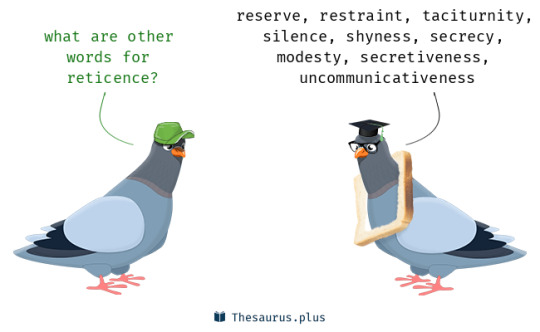
Mara experiences more trauma in one night that most, thankfully, do in a lifetime … how does one express these emotional stresses without trite verbiage? We all have heard about PTSD (post traumatic stress disorder), yet experiencing this disorder is a difficult conveyance unless one is directly or indirectly affected by the ramifications. But writers are imaginative souls … these settings can be described effectively if a writer listens and learns.

Photo from The Writing Cooperative
In his novel The Battle Within, author Alastair Luft, himself a military veteran, conveys the setting and sensory details that tag along one with PTSD. With the reading of this novel a learned some of the clues to experiencing this disorder, including the denial, lack of introspection, and memory lapses that affect these victims. The wording used to describe the subject’s inner mind were helpful in envisioning Mara’s experiences and inner responses. I also stumbled upon an internet site called “Quotev” that included several interesting stories on the subject of PTSD.

Illustration from The Heroes’ Mile
Other facets of my story have more easily accommodated sensory details, the easiest were the details of Maine that I recall well. For example, my memories of the persistent fogging that occurred during times of spring and summer were included.

Photo from Road Less Traveled
The pungent smells of the marine life along the Maine coast as well as the heady balsam odors that are prized in Christmas wreaths were influential as the story progresses. Mara flees in an old Volvo that rattles and creaks during her trip, and she experiences the “wooshes” of muddy water in road crevasses as she fords portions of bad roads.

Photo from Trip Advisor
Toward the end of her night, a lift rainfall complicates her quest as falling moisture “rat-a-tats” on the hood and roof, almost in a pretext for the gunfire that will shortly “pop”, “ping” about the Volvo, and the cracking on the window as bullets pierce and spider-web the residual glass hole. In her final surge forward bullets rip through Mara’s leg.
https://www.youtube.com/watch?v=HxXM6sbKApk
Sorry folks, I initially decided to include sound clips of the gunfire approximating that Mara mmight encounter in my story, but couldn’t bring myself to do so: too many painful thoughts of my younger brother’s suicide by a handgun.
To describe the story setting in greater detail would serve only as a spoiler session for the final reading; hence, I hereby cease further discussion of setting and detail.

Courtesy of The University of Maine
Did this discussion further your appetite for Flight from Egypt?
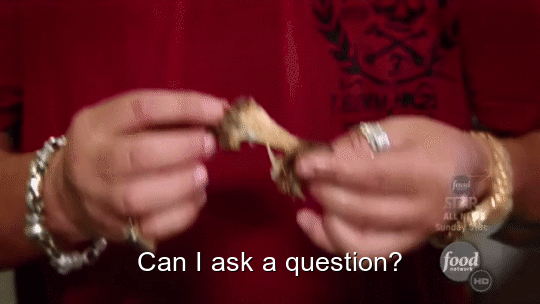
2 notes
·
View notes
Text
BLOG NUMBER FOUR
February 21, 2022
Though I have held the “Mara” story in mind for more than a year, I made the decision to capture her adventure in Flight from Egypt immediately before our current class’s beginning. The story’s possibility intrigued me for several reasons but, simultaneously, terrified me. If I created this tale in short story format, I faced the challenge of limiting a complex story within a finite number of pages. This challenge currently stands as the primary one.

Photo from Logan University
The second major challenge is gaining sufficient knowledge and information to reasonably capture the characters and circumstances of this tale. Acquiring that support required a commitment to research that was second only to the essay I wrote in the Fall of 2021. Eventually I concluded I should research the following categories:
· Geographical Setting,
· Regional Sociological Setting,
· Contemporary Political Setting,
· Character Inventories,
· Totalitarianism Evaluation,
· Persecution and Persecutors: Despotic Controls
· Emotional Inventory of Those Fleeing Homelands.
Geographical Setting
My story takes place in the State of Maine, a place I claimed residency in the early 1980s and one that I explored extensively. However, much of what I recall from that period is dated, requiring a “boning up” on current information. Based on percent of land area, Maine is the most forested state in our nation; hence, Mara’s flight from coastal Maine required a circuitous route if she was to successfully escape capture. Forrest preserves would thwart her at every turn.
Fortunately, a Maine friend of mine kindly lent a dog-eared and reasonably current copy of the DeLorme Maine Road Atlas: this publication allowed me to plot a backwoods escape route to a minor border crossing station into Canada. Calculating driving times remains a minor barrier to accuracy; however, since Mara had been driving many dirt roads, I abided by a 25-mph rule that appears to be a reasonable one.

Map from VisitMaine.com
Regional Sociological Setting
An alternate heading for this research category could be worded as “what makes a Mainer tick.” Having resided in the Midwest, Mid-Atlantic, and Southern American regions in addition to Maine, I have personally concluded that Mainers, by far, possess the most interesting personalities among them all. Fiercely independent as a group, Mainers have developed a reputation as a populace not responding kindly to orders or coercion. However, like all stereotypes, exceptions exist plentifully. In addition to the many stalwart people I knew, I also encountered those fully equipped with a petty sense of meanness and vendetta that astonished me. On rare occasions I was made aware of a strange variation of the “Robin Hood syndrome”, where theft, property destruction, and even harassment were tolerable if the victims were deemed too rich or insufficiently “Maine-like.”
As I suspected, my research established that, in general, crime rates are not low in Maine except for the southern coastal areas extending from Portsmouth, NH and northeasterly through Portland and fifty miles thereafter. Crime rates are highest inland from the coast and northward toward borders with Quebec and New Brunswick. Since an excessively idealistic perception of Maine exists out-of-state, some readers might find the story villain, Cab Kapinos, not believable. His believability and of those unnamed persons assisting him in Mara’s capture remains of concern to my writing mission.
Reading the regional crime stories in the Portland Press Herald’s “Courts and Cops” section has assisted me in better understanding the sociological variations in this region.

Contemporary Political Setting
Researching this category was among the easiest of all the categories. Having been a life-long student of history, I have watched the American political scene for years. Though I do not fully understand the why’s of our current political scene (who does?) I have scrutinized it with increasing alarm.
As Flight from Egypt is obviously speculative in nature, I have blended established facts with my personal political bias and exercised artistic license to the finishing touches of a work of fiction. The reader, however, should recall that similar occurrences darkened our world repeatedly within the past 100 years and, assuredly, within each of our lifetimes.
More of this thought line later in this post.
Character Inventories
The story villain, Cab Kapinos, was created through my review of later categories relative to support of despots and totalitarian regimes. I needed to understand the mind of a character willing to perform evil deeds in the name of a doctrinal expedience. In my opinion, similar characters have existed throughout American history, with or without a despot’s presence. Cab’s physical characteristics were simply the whim of my creative pen.
The characters of Mara and Joel Michaud continue to be of challenge to me, particularly with Mara as the main and most complex character. Both characters were formed from a composite of persons that I knew and still know in Maine. I was once asked when I resided in Maine whether Mainers really wore clothes from LL Bean. My sarcastic comment was, “Only at high mass on Sundays.” Yes, I envisioned Mara partially from my review of vintage LL Bean catalogs from the 1980s and 90s.

Mara, however, is a more complex person that a two-dimensional catalog page. She is not only on the run for her life, but she’s been on the run from her own being since adolescence. Mara does not know who she is. She is somewhat clueless concerning her strengths and life priorities.
Rather than delving into tedious psychological reviews, I decided to lean heavily, in spirit, on three characters from two well received American novels: Delores Claiborne from the novel of the same name by Steven King, and Jack Twist and Ennis del Mar, both characters from the story Brokeback Mountain by Annie Proulx. Each of the three characters, while not in the same sense as Mara, is on the run. Each of the three has an astonishingly limited understanding of themselves as human beings.

Movie Poster - IMDb
Totalitarian Evaluation
As a student of the WW II era and the human-impacting horrors that era brought upon us, I have read many books and essays about totalitarianism. More often than not a despot acquires total power under national circumstances of crises, chaos, and abject stress. These factors were the contributors to Hitler’s rise to power and applies to the rise of Stalin, Pol Pot, Milosevic, and on. As a person who reveres the written works of philosopher and essayist Hannah Arendt, I have relied heavily on her work, The Origins of Totalitarianism (Harcourt, Brace, Jovanovich, 1973). Hence, I completed much of my research in years past, though I recently read the following works to further hone my understanding:
· Death of Democracy, Benjamin Carter Hett, Henry Holt & Co., 2018,
· BBC Bitesize History Reviews: Hitler’s Rise to Power, 2022,
· Stalin, The Court of the Red Tsar, Simon S Montefiore, Vintage, 2005
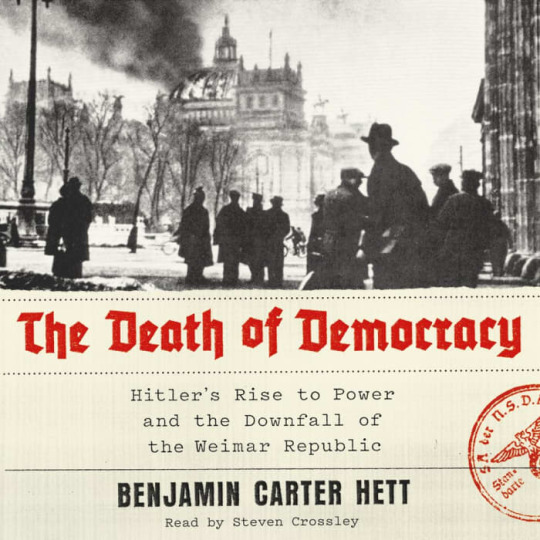
Amazon.com
Persecution and Persecutors: Despotic Controls
Among the most fascinating aspects of totalitarian regimes are the whys of a cooperative populace. Why do some persecutors appear to thrive in the cruel circumstances of despotic controls? What manner of mentality finds success during times of duress and edict? How do the deputies of totalitarianism function?
My bible in this research continues to rest on Hannah Arendt’s classic work, Eichmann in Jerusalem, A Report on the Banality of Evil (Penguin Classics, 2006). Arendt was a double refuge from the German Nazi regime having fled from Germany initially and later from Paris where she had temporarily settled. She faced harsh criticism from fellow Jewish scholars by her portrayals of Nazi henchmen as unaccomplished dullards who chose to blind themselves to the evil they were perpetrating.

Other sources in my research included:
· Vigilantes, Brown Shirts, and the Attack on the Rule of Law, David M. Crane, The Jurist, 2020.
· Dictators and their Followers: A Theory of Dictatorship, Gustav Bychowski and Gustaw Bychowski, Bulletin of the Polish Institute of Arts and Science in America, 1943.
Emotional Inventory of Those Fleeing Homelands
Of all the categories I am examining during my research, this category has been the toughest for me. Given the charmed life I have lived, with adventure and opportunity, understanding the experiences and emotional damages dealt to those fleeing from persecution and their homelands is a nearly unattainable goal. I have little clue whether I would respond with the deliberate courage required to successfully transfer from a faltering life in one location to a reasonably acceptable one in a new land.
My research has shown that fear is the overriding motivator when flight appears necessary: fear of shelter loss, fear of bodily harm, fear for your friends and loved ones, fear of income loss, fear instilled by hunger, and fear of bodily harm. What astonishes me is the realization that those who cause this fear do so for rather simple reasons: the systematic perception that a set group of people are deemed instigators of others’ woes. Whether the persecuted people have been confirmed as instigators is of no concern to those charged with their oppression. Blind submission to edicts of hate is all that matters. As with Adolph Eichmann in 1961, even when faced with condemnation of their crimes, the perpetrators of torment continue to justify their actions.

The following have been helpful as sources of applicable information:
· The Displaced: Refugee Writers on Refugee Lives, Viet Than Nguyen, Abrams Press, 2018,
· Fleeing Persecution and Separation from Family, from Immigrants and Refugee Families, 2nd Edition, by Ballard, Dwanyen, Solheim, & Wieling, University of Minnesota Library Publishing,
· George Edel About the Stay in Paris, We Refugees Archive, 1947, and
· A Refugee Family Shares Experiences of Fleeing Persecution, Joyce Duriga, Chicago Catholic, 2017.
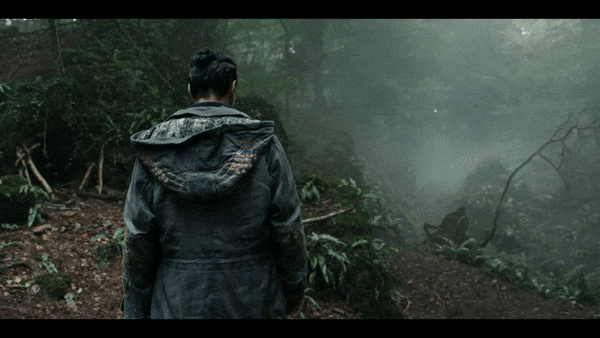
7 notes
·
View notes
Text
Comments for my CSU Followers

While I have been in contact with Tumblr, the disabling of my comments/responses capabilities has not been resolved. Tumblr’s initial response was that my email address of record has not been verified, though I have attempted to reboot and reverify repeatedly to no avail.
This petty trauma aside, I yet have a requirement to provide comments to the blogs of my student peers.
Until the Tumblr hiccup is resolved, I will be responding to blogs directly to each student via individual CSU email addresses.
I apologize for this less-than-desirable approach.
3 notes
·
View notes
Text
BLOG NUMBER THREE
Sunday, February 6, 2022
Mara Nettleton Michaud is my primary character in the story Flight from Egypt. I chose the name Michaud as a tribute to my first cousins of Quebecois descent and to symbolize the agrarian/ working class Quebecois people who migrated to Maine seeking better lives as mill workers. Mara is of staunch New England Anglo descent having been raised a privileged offspring of a mercantile family that owns the Nettleton supermarket chain (fictional). She was born in Portland, Maine and grew up in a seven-bedroom house on Portland’s West Promenade, overlooking Casco Bay. Attending a private academy, she graduated honorably and without incident, hoping thereafter to intern in one of her family’s many supermarkets.

(vintage postcard)
Her father, believing that women in retail was an unseemly prospect, packed her off to a pricey small town private college. Her family’s plan for her was to serve as a marriageable pawn in furthering their grocery empire. But to chagrin of her family, she married Joel Michaud, the son of papermill workers in Rumford, Maine and liberal idealist active as a union official at a Maine nuclear power plant, Wiscasset Yankee Atomic Power Plant.

(photo copyright by ND Paper Corporation)
I am reminded of Sanjeev in Lahiri’s short story “This Blessed House” having acquired a spouse from “a suitably high caste” as a partial motivation for a good life and, likely, achieving his family’s approval. But thinking of Mara’s family intentions for her life, Joel Michaud, of course, was not of suitably high caste.

(photo from Bibilcalcouseling.com, a source of advice Mara’s family would support)
Though Joel wooed Mara with his sensitive and intelligent personality as well as a tender lover, Mara has never-settled misgivings in having defied her patrician family in marrying Joel. Her chosen path has been more difficult than that planned by her family. Their married life is challenged by persistent budgetary challenges and Joel’s area reputation as an agitator for liberal causes. While she loves and admires her husband, she was raised to be comfortable, not confrontational. She’s a graduate of the staid Colby College, while Joel bootstrapped himself over time with a degree earned over time at Southern Maine University following his Navy service. Mara’s college friends are establishment souls who pity her life. Joel’s are partying activists who live and play hard. Mara and Joel are often at odds over their life’s differences: Mara, with marked hesitance, usually accedes to Joel’s approaches.
Mara does not have an established sense of self-esteem: she has been raised to comply and does that handily. However, she’s smart enough to know she should, in some ways, step out on her own path. Her college friends and women at her local liberal church call her dowdy behind her back. Much to her dislike she has a boyish figure and a face that could have been called child-like had it not been so unremarkable. Again, like Lahiri’s Sammy, Mara is not happy with her body, she with her shape and he with his height.
Her hair is fine and straight, shoulder-length with a dull dark brown tone without highlights. Her clothing styles of choice adhere, at best, to what some call LL Bean chic owning to her persistent donning of corduroy shirtwaist and denim shift dressed, flannel-lined parkas, and, in winter, gum soled boots.
https://www.askandyaboutclothes.com/community/threads/ll-bean-christmas-1984-catalog.235188/
She smokes irregularly, a habit she acquired during preps for college final exams … though she loathes the habit, she excuses it as a product of stressful episodes. She has been finding life more stressful than previously; hence, more smoking.
What drives Mara? During normal times she would have claimed that she was driven primarily by the requirements and demands of raising three children, each younger than adolescents. Her youngest, Joshua, is still an infant. Painfully aware that her life, both pre- and post-marriage, has not abundantly enabled her the independence to seek her own life’s course as she thinks she should. She naively believes that those opportunities were prohibited from her and, in this belief, she is driven with a desire to ensure those opportunities are afforded to each of her children. It is not obvious to her self-understanding that she is not necessarily open-minded to her offspring taking steps that deviate from her own ideas of an appropriate life.
Yet Mara is fiercely loyal to her family, husband and children alike. She does not suffer criticism of those in her family lightly and will take any step to protect them from physical or emotional harm. Hence, Mara’s ongoing primary motivation: protecting the very lives of those she loves. She is on the run for reasons that have yet to be elaborated. She must act swiftly and wisely, to be quick on her feet to take the actions needed at any moment to carry her family to safety. In summary, she has embarked on a short course to live her immediate life in a way that she has never lived her past.

As with Sammy in John Updike’s story “A & P”, Mara’s ongoing plight is triggered by actions and activities that preceded the story’s beginning. Mara’s plight is significantly more sobering, however, than a young man’s difficulty in learning the world’s ways … she has no other choices if she wants to survive. She is fleeing in the night in a borrowed car.

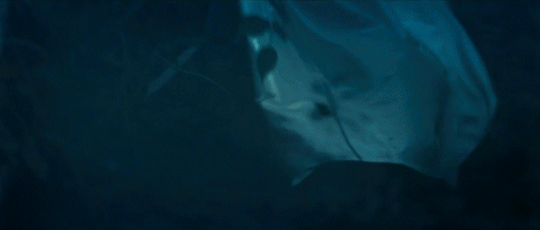
8 notes
·
View notes
Text
Begging Ernest’s Forgiveness

Saturday, February 5, 2022
In my previous blog I was found guilty of a literary sacrilege: I errantly criticized Hemmingway on his seeming oversight of writers’ rules that apparently bind the rest of us. Having visited Hemingway’s Key West, Florida home this past week and having discussed the matter with a self-described Hemingway scholar, I have journeyed into a status of contrition. I thereafter begged forgiveness from Hemmingway’s ghost. I should also add that several of the in-residence polydactyl cats snarled vociferously at me whilst I entered the house in an unrepentant state.

The wise scholar who, when I explained my proudly ignorant position, laughed and brushed my student earnestness (pun intended) aside, He explained that many if not most of Hemingway’s early works did, indeed, “follow the rules.” It wasn't until the author found his voice as a writer that he escaped the rough shackles that bind us in our learning and submissive years.
I departed a forgiven soul, assured that the cats had resumed their earlier slumber upon Ernest’s experienced bed.
A student’s lessons learned, eh?

2 notes
·
View notes
Text
BLOG NUMBER TWO
Sunday, January 30, 2022
Hello again fellow writers.
The objective of this blog is to establish an overview of the beginning of my envisioned short story ... to provide a hint of the means by which I intend to start the story in ways that will engage the reader at the onset. This objective is a noble one, one that could result in the writing of legions of pages and many blog posts. The perfect beginning: ah, if only there was a secret formula that one could apply to achieve this quest. As indicated in our text, The Art and Craft of Fiction by Michael Kardos, writing fiction is an art, not a science; hence, the creation of a great story beginning is more a matter of opinion than formula.
Though I have been fortunate to have read hundreds of short stories, I must say that many of the supposed masterpieces defy the guidelines provided by Mr. Kardos and others. As an example, allow me to include the first paragraph of Ernest Himingway’s classic short story, Hills Like White Elephants:
“The hills across the valley of the Ebro' were long and white. On this side there was no shade and no trees and the station was between two lines of rails in the sun. Close against the side of the station there was the warm shadow of the building and a curtain, made of strings of bamboo beads, hung across the open door into the bar, to keep out flies. The American and the girl with him sat at a table in the shade, outside the building. It was very hot and the express from Barcelona would come in forty minutes. It stopped at this junction for two minutes and went on to Madrid.”

Artwork courtesy of Goodreads
In our text, Mr. Kardos states that the start of a good story should accomplish the following:
Introduce characters and their relationships,
Present the basic predicament and the beginning of conflict,
Eastablish the tone, voice, and point of view,
Establish a setting, and
Give us a reason to keep reading.
In reading the beginning of this story, I am convinced that Hemmingway accomplished only one of these recommendations: he established a seeting howbeit weakly. Of course, this is but my opinion ...yours may differ from mine. We believe that ole’ Ernest is a great writer because this academic dogma has been drilled into our little learning noggins for nearly a century. However, in my opinion this story establishes only one reason for the reader to keep reading: the author’s name and fame ... Ernest Hemmingway.

Okay, I’m NOT Ernest Hemmingway: I have not written classic stories that are generally regarded as masterpieces. My example of Hemingway’s story is not so much a rebuke of his writing skills as much as a voicing of my suspiscion that writing rules aplly primarily to writing students and unpublished authors. How about that ... I am both.

So let’s talk a little about my intentions for my own story.
I’ll begin by announcing that I intend to be and remain a bit reticent on the details of my proposed story. First, the story line will be a complex one that will present a basketfull of challenges to me as a witer: I am limited to 15 pages of double-spaced type, a limitation that will be a daunting one for me. Because of this limitation I have yet to ferret the intricate details from my notebook.
Second, since this blog is viewable by the public, I do not intend to provide a detailed story line for another to publish. My work is my own.
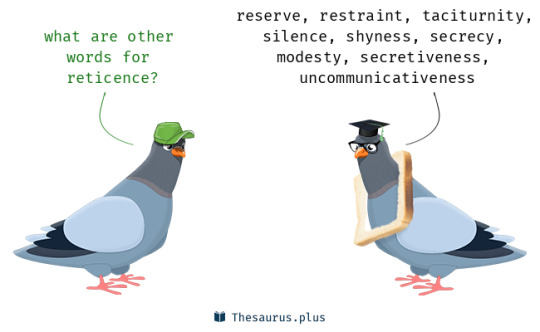
My protagonist, Mara, is on the run. She is fleeing danger to her three children and herself. The first paragraph will not introduce Mara, but will establish the bases for her “flight from Egypt.” The primary basis is a national emergency. The details ... well, please stay tuned.

Artwork originally published in BU Today magazine, Boston University
The story will be told from Mara’s perspective. Mara’s story will be revealed in both present and past tenses: present tense as she flees for her life, and past as she thinks back to the circumstances that led to her family’s crisis. The circumstances are primarily political in nature.
Mara is not a political or philosophical idealist ... she is not a person who has been dogmatic in her approaches toward life. She was raised by a staunchly conservative New England mercantile family, a family that has enriched itself through a retail chain. Hers is a family that has long disapproved of Mara’s marriage to a man who they held was “beneath” her and their family. Through it all, Mara is torn; however, though she might wish she had adheared to her parents’ wishes that she had retained a protected life within the family fold, she is stuck with the current circumstances. She must respond to what she regrets was within the path she chose.
The beginning of my story will introduce the ongoing plight that Mara faces with succinct flashbacks to events that led to her plight. My goal is to successfully meet each of Michael Kardos’ five objectives in starting a story (Ernest Hemingway be damned!).

6 notes
·
View notes
Text
BLOG NUMBER ONE
Tuesday, January 18, 2022
Greetings to my fellow writers.
For years (I have had many at my disposal) I have been a student of the World War II era, not in studying the art of warfare and battle strategy, but as a person in awe of the political and social motivations that led to the slaughter of millions. Having reviewed hundreds of books and journals on this wide-ranging topic, I have been and remain somewhat clueless on the wherefores and whys of this overpoweringly disastrous period. Regardless of all the overviews, examinations, and explanations, I just don’t get it.
In her intensely debated book Eichmann in Jerusalem, written following the trial of Nazi criminal Adolph Eichmann, Hannah Arendt coined the words, “banality of evil.” The book, an overview of the trail of Eichmann for crimes committed upon the people of the Jewish diaspora, she examined the rationales and behaviors of otherwise law-abiding human beings under the stresses of totalitarian regimes. Arendt concluded that Eichmann, as well as lesser contributors to these crimes, were not so much evil-infused monsters as they were ordinary (banal) people who placidly allowed evil times and vilifications to carry them into a sea of criminality.

Quote courtesy of Philosophy Matters
To date, the most terrifying self-imposed question that flutters about my soul is the following: what would you do in response to similar times and vilifications? I have never answered that question with a sense of confidence. Perhaps my soul remains wholly vibrant with the question unanswered. I’m not sure.
Once, during a discussion of fascism, I asked my son-in-law, how he would respond to the pressures of totalitarianism. He replied firmly that he would assuredly resist. Then I posed a horrifying scenario: should a lower ranking government hack arrive with an announcement that someone dear to your life would be harmed unless you cooperated, would you? He would not respond.

Historical photo: not copyrighted
Getting back to my journey in accepting this course challenge, my introductory blog words provide the rationale for the short story I intend to write this winter. The story topic is neither directly tied to WWII nor the Jewish diaspora. The story will not examine the “banality of evil”; however, in different place and time. It will examine the plight of a family persecuted by those who never asked the question, “what would I do?” The story line concerns itself with the tragic outcomes ensuing from a segment of society that has undermined the truth and has enshrined chronic falsehoods.

Refugees flee the Nazi invasion of France
Photo courtesy of Forbes Magazine
My proposed story will not transpire in Europe, but in the United States of America. Yes, the story will have political overtones. Yes, the tale I envision will not be well greeted by those consumed by partisan dogma. Yes, the ideas forming in my aging brain are heavily founded on a series of “what if” scenarios. Yes, the telling of the tale will include a degree of symbolism, beginning with the story title: Flight from Egypt.

Egypt Bay, Maine
Photo courtesy of Pemetic Purveyors Real Estate Co.
As an amateur writer I have created more that a dozen short stories, many that included autobiographical features (I’ve lived a delightfully adventurous life). However, as my writing matures, I have discovered the joy in traveling beyond autobiography and into fictitious conjecture. Thanks to our professor’s influence last semester I have learned that my more “personal” stories were better drafted as creative nonfiction pieces. The proposed short story is an adventure into fiction with little personal experience. Yet I have known the nature of the characters I hope to create on paper.
While I am eagerly anticipating the forthcoming writing adventure, I am also frightened by the prospect: as with much of my life’s endeavors I am affected by a fear of failure. What if the flow and nature of the story just doesn’t work? What if my story lacks the senses of angst and terror that I envision?
In response to fear, I ardently implore that you, my readers and fellow students, assist in advising and guiding me in this adventure. Creativity is gift that heavily rests on the foundation of our peers and predecessors. Words sung in a somewhat sappy anthem written in the post WWII era included those in the title “No Man is an Island.” Aside from the unnecessary masculinization of the title, there is truth to the chorale’s intended concepts.

12 notes
·
View notes
Text
Greetings
January 12, 2022
My pen name is Michelo Isola. I have always been a dreamer.
As a lad, I fell under the spell of my maternal grandmother, Allie McLean Smith, the annointed family story-teller. The Celtic lyric traditions resonated within her soul as the accomplished teller-of-tales within our clan, both blood relation and non-related wannabe’s. She was blessed with an approving familial audience. I was not.
The current times are saturated with dissention, self-importance, and a near-abandonment of critical thinking. That I am a gay male irritates some family factions and creates unachievable expectations for me with others. That my pronouncements differ with those of others tends not to be greeted with a humor-fueled counterpoint but by bumbling anger.
Hence, the adoption of a pen name: this apporach is a compromise between a keeping of the peace and a self-extension of personal freedom. My life has been an adventure, an existence for which I am exuberantly thankful. My wirting is a debtor’s response to loan extended to my being.
My hope is that you enjoy following my writings and ideas. My objective is to initiate thoughtful consideration. Would that you agree with all that I write: God help you!

illustration courtesy of reedsyblog (https://blog.reedsy.com/how-to-write-a-book)
3 notes
·
View notes